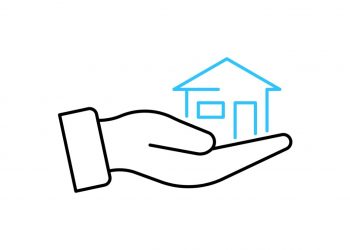Editor’s Note: The Disruptor Roundup analyzes companies implementing unconventional models.
Ribbon is a cash-buyer intermediary that allows homebuyers to beat out the competition in a busy market with multiple-offer scenarios. Buyers have the competitive edge by being able to submit an all-cash offer on the home, removing any contingencies the buyer would normally require, such as needing to sell before being able to purchase a home. These types of contingencies can be a red flag to sellers who are looking for a quick and easy transaction with no obstacles.
The process? Buyers must first fill out a Buying Power application with Ribbon and should hear back within a day. Once approved, the buyer selects the home and makes a Ribbon Offer—a standard offer to purchase with an addendum that legally binds Ribbon to purchase the home if the buyer is not able to by the closing date.
Ribbon can purchase the home on behalf of the buyer, giving them more time to qualify for and obtain a mortgage so they can then purchase the property back. In the meantime, the buyer pays Ribbon monthly rent and a one-month security deposit to live in the home. There is a maximum 1-year lease period in which the buyer can obtain a mortgage and purchase the home back, and a 90-day period in which the sale price is locked in at the amount Ribbon purchased it for.
There are restrictions, however. Right now, Ribbon is only available in Charlotte, N.C.; however, the company is expanding into other markets in the near future, according to their website. Additionally, properties must be single-family residential homes (typically 3 bedrooms and 2 bathrooms with at least one garage) in the $100k-$600k range. While some townhomes and condos may be eligible, they must allow traditional financing and rentals. Also, these homes must have clear title held by the seller, must be at least 1,300 square feet and have a lot size of less than an acre.
Additionally, Ribbon does not provide mortgage services and cannot determine a buyer’s ability to secure a home loan. While Ribbon’s Buying Power serves as an initial vetting of the candidate, only a mortgage provider can issue a home loan, adding a bit of uncertainty to the transaction.
What happens if the buyer decides not to purchase the home or can’t qualify for a mortgage? Ribbon isn’t a property manager and will likely sell the home to another individual who would then become the landlord should the buyer continue renting. And while Ribbon’s transaction fee is typically 1.95 percent, applicants who choose not to purchase the property within the required time frame must pay a 2.95 percent fee instead.
The question remains—is it worth it for buyers? While Ribbon claims that its offers typically command a 5 percent or more discount, with Ribbon’s fee, the track to homeownership can become more expensive, especially as rent is added into the equation for those who need more time to secure a home loan. However, it may be worth it for some buyers who would normally have detrimental contingencies so they can more easily win on home bids in a bustling market.
A bonus? The flexibility to choose any real estate agent. Ribbon clients can choose to work with a Ribbon Certified Agent (any agent who has helped buyers use Ribbon in the past), or their own agent as well.
 Liz Dominguez is RISMedia’s associate content editor. Email her your real estate news ideas at ldominguez@rismedia.com. For the latest real estate news and trends, bookmark RISMedia.com.
Liz Dominguez is RISMedia’s associate content editor. Email her your real estate news ideas at ldominguez@rismedia.com. For the latest real estate news and trends, bookmark RISMedia.com.












My agent is guiding me to use Ribbon but I don’t see the advantages if I am putting significant money down and qualified for loan?